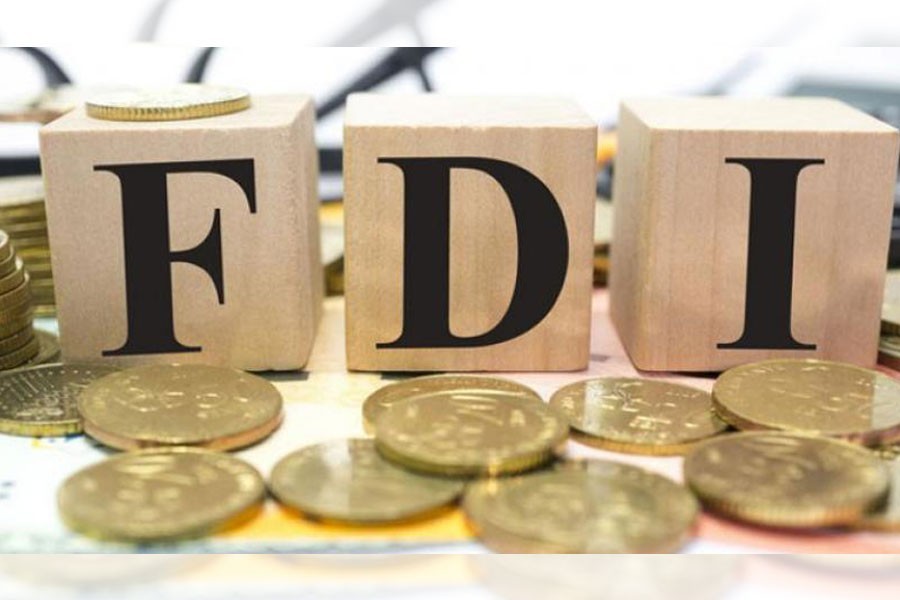Comprehensive reforms in the financial sector are essential for drawing in more foreign investments in Bangladesh, said speakers at a workshop on Monday.
Inflow of higher foreign direct investment (FDI) is a must to attain Bangladesh's development goals as it is graduating to a developing nation, said the speakers, underscoring the need for further improvement of infrastructures in the country to get a better outcome.
They also said promoting Bangladesh as an ideal destination for the investors - highlighting its demographic dividend alongside other factors - was also vital to attract FDI.
They made the comments at a post-event workshop on the International Investment Summit 2021 (IIS 2021) - held in November last year - organised by the Bangladesh Investment Development Authority (BIDA) at a city hotel.
BIDA also presented 24 key reforms, which came from local and global stakeholders during IIS 2021, at the follow-up workshop.
Commerce Minister Tipu Munshi attended the ceremony as the chief guest, while Private Industry and Investment Adviser to the Prime Minister (PM) Salman Fazlur Rahman and Principal Secretary to the PM Dr Ahmad Kaikaus were the special guests.
BIDA Executive Chairman Md Sirazul Islam presided over the event joining virtually.
Tipu Munshi said BIDA as the apex investment promotion body of the country had been showing its efficacy through various initiatives - of them, the IIS 2021 had been a major milestone.
"Bangladesh's economy has already taken off and we need more FDI inflow to sustain the right path," he said, highlighting the necessity of such international events.
Referring to some peer countries like Vietnam that are drawing more FDI compared to Bangladesh, the minister said: "Based on the peer countries' policies and strategies, we have to uplift our investment climate."
Speaking on the occasion, Dr Ahmad Kaikaus said Bangladesh was a resilient country that could respond to any difficulties promptly in a bid to sustain its economy.
"Our strength is that we adapt, we change and we thrive," he said, elaborating on the country's economic achievements
amid the Covid pandemic.
The principal secretary also said the private sector as well as ICT should play a crucial role in helping attain the country's economic goals.
Salman F Rahman acknowledged that Bangladesh still lagged behind in terms of attracting adequate FDI despite its offer of various amenities to the investors including low-cost labour.
"Though local investment to GDP ratio is somewhat okay, we really lag in terms of FDI to GDP ratio," he said.
Development Director at Foreign, Commonwealth and Development Office (FCDO) of the United Kingdom Development Director Judith Herbertson, Acting Country Manager of the International Finance Corporation (IFC) for Bangladesh Nuzhat Anwar, Federation of Bangladesh Chambers of Commerce & Industry (FBCCI) President Md Jashim Uddin, and Foreign Investors' Chamber of Commerce and industry (FICCI) President Naser Ezaz Bijoy attended the programme as the guests of honour.
In her speech, Judith Herbertson said greater economic and financial integration, access to capital, job creation and enhanced productivity were crucial for Bangladesh economy.
She highlighted the need for improved infrastructure and introduction of new financial instruments for further development of Bangladesh.
"In terms of investment climate reforms, a growing and diversifying economy like Bangladesh will need more capital and modern technology specially to make growth green and environmentally sustainable in the future," she said.
The role of a strong and competitive private sector and sound regulatory environment are also necessary for creating an enabling environment, she added.
Director of BIDA Md Ariful Hoque made a keynote presentation at the workshop.
According to the presentation, deals, memorandums of understanding (MoUs) and declarations worth over US$2.7 billion were signed during IIS 2021.
It recommended developing a policy to allow private sector engagement in power transmission, formulating a National Logistics Strategy, and opening the transport sector for the foreign investment.
Its 24-point recommendations also included modernising the Bankruptcy Act, developing guidelines and regulatory framework to attract FDI in the IT sector and encourage freelancing, and adopting global environmental and social compliance standards in the manufacturing sectors.


